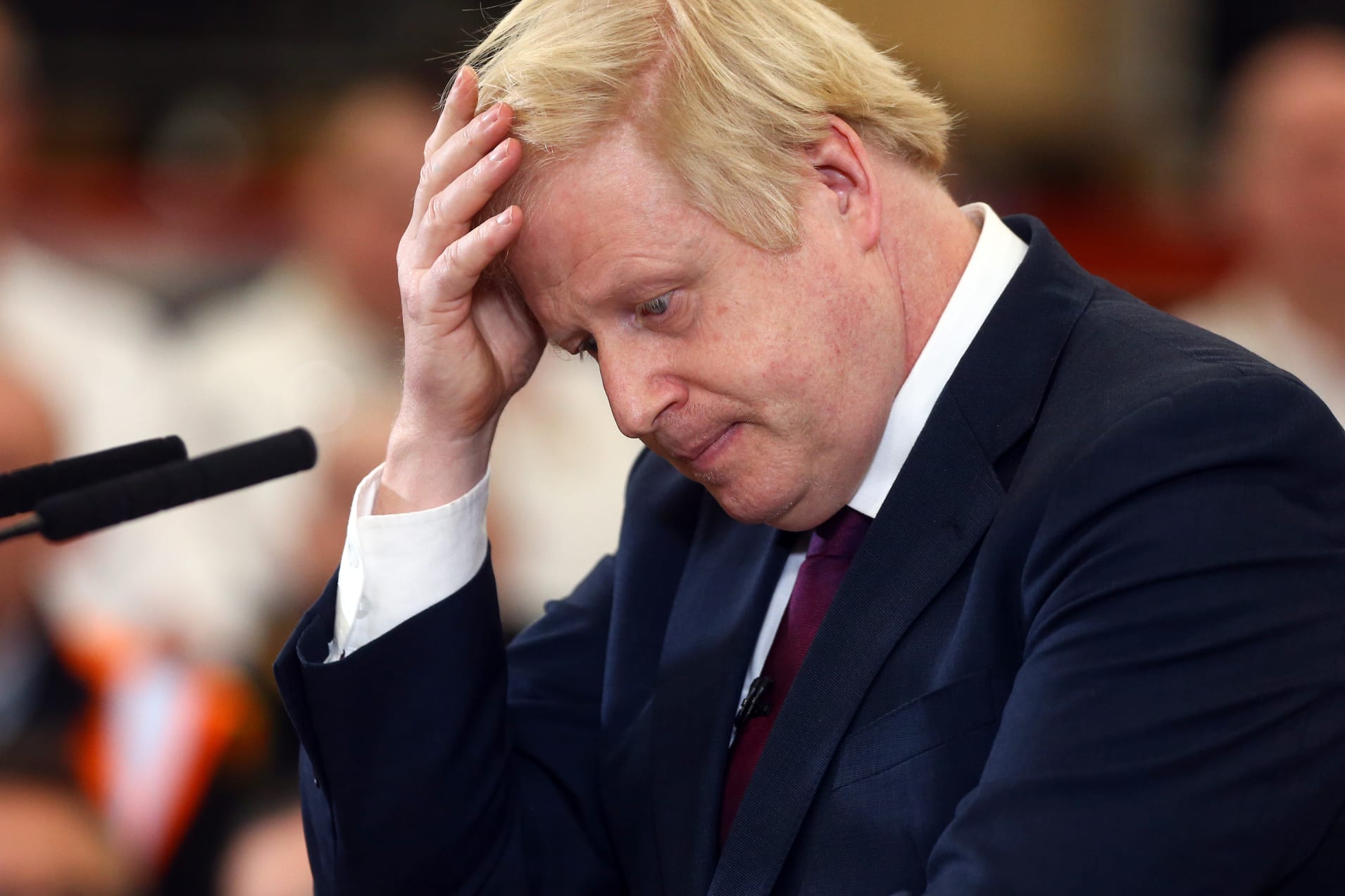
If Boris Johnson’s near brush with death has caused him to take his role as Prime Minister more seriously, there was little evidence of it in his address to the nation upon his return to Downing Street. I was struck by his last line ‘We will come through this all the faster and the United Kingdom will emerge stronger than ever before’. This is pure fantasy, at a time when people are desperate for their leaders to level with them. Mr Johnson promotes himself as Churchillian, but he was slow to grasp the seriousness of Covid-19, some might say, recklessly complacent, and judged by his address, still unable to accept reality. The hospital fatality rate is currently around 21,000 but total deaths from coronavirus are probably nearer 40,000. In his address, Mr Johnson wanted to focus on success. He claimed ‘success’ in protecting the NHS from being overwhelmed – ignoring a decade-long financial squeeze that had left it ill-equipped. What Mr Johnson described as a ‘success’ was in fact achieved by placing an intolerable burden on community care. True to form his statement was full of bluster and ill-chosen analogies e.g. the coronavirus mugger, while blithely ignoring his government’s own negligence, despite warnings, in failing to provide adequate supplies of personal protective equipment for NHS and care home staff.
Mr Johnson’s mindless bluster and optimism is the antithesis of leadership. The outlook is grim as the toll on the economy becomes more savage by the day. Forecasters are agreed, the UK is now in a recession significantly deeper than the financial crashes in 1929 and 2009. The Chancellor deserves credit for the provision, if not the delivery, of a £330bn support package for businesses and their employees. But in introducing his package, Rishi Sunak pledged to do ‘whatever it takes’ and all the signs are that he will need to make good on this promise. The OBR is predicting that GDP will contract by 35 per cent in the second quarter and unemployment could hit ten per cent. The NIESR estimates that GDP decreased by 5 per cent in the first quarter and is on track to fall by a further 15 to 25 per cent in the second quarter. More to the point it does not expect GDP to returns to its end-2019 quarterly level until the end of 2021. In a separate report, the EY Item Club is forecasting, that despite the Chancellor’s measures, almost half of consumer spending in 2020 is at risk of being delayed or lost completely and it would take until 2023 for the economy to return to the level reached at the end of last year.
Yet another report by the Royal Society for the encouragement of Arts, Manufactures and Commerce concluded that one in three jobs in parts of Britain were at risk. Ironically, it identified Richmondshire in North Yorkshire – which includes the Chancellor’s constituency – as topping the list of areas likely to be most affected, with 35 per cent of jobs being vulnerable owing to the area’s reliance on hospitality and tourism. Finally, a report by the Enterprise Research Centre, comprising a group of university researchers, reveals that compared to the same month a year ago an additional 21,000 UK businesses collapsed in March. Despite the lack of contemporary data – a convenience for a government addicted to spin – approximately an additional one million people have so far applied for universal credit, and more than four million workers have been furloughed.
The government has yet to acknowledge the severity of the recession and its aftermath. Rather it has chosen to opine that it will be short-lived but this appears wishful rather than grounded in evidence. The Chancellor’s package will help many firms to bounce back as the lockdown is lifted, but many will not be so lucky. One in four of the businesses queuing up for the Chancellor’s bailout, still plan to make workers redundant, forcing them to sign up to get up universal credit. Moreover, supporting the supply side is not sufficient. The level of economic activity requires a matching of demand and supply and as a serviced based economy the UK is much more depended on domestic demand from consumers than exports.
We still have no idea as to the government’s thinking regarding relaxing the lockdown. Chris Whitty, CMO, admitted that some form of lockdown could last until at least the end of this year. On this basis, the country’s withdrawal from lockdown will be phased over many months and it is during this period that the country will face its most severe challenges as the Chancellor’s supportive measures are withdrawn. Moreover, it remains an unknown as to how consumers will respond as shops, restaurants and places of entertainment are opened-up. Will people rapidly return to pre-crisis behaviour or will natural caution dominate? It seems unlikely, that when allowed, people will rush to spend money in crowded venues. Consequently, many businesses will struggle to bear the operating costs of being open while demand and sales are reduced because of social distancing and natural caution.
Against this gathering gloom, bluster and blind optimism is woefully deficient. The choices facing the country are too fiendish to be hidden behind bogus enthusiasm, selective communication and denial. The nearest we got to an apology was Mr Johnson’s declaration that in future ‘decisions will be taken with the maximum possible transparency’, and the government will share all its ‘working and thinking.’ We’ll see. To date, the government’s patronising approach has been one of ‘never-give-an-inch;’ broken promises regarding targets and testing and sound-bites. When it comes to Churchillian leadership in the face of Covid-19, Angela Merkel is the standout example. When addressing the Germany people she demonstrates a detailed knowledge of the issues and is open about the nature of the hard choices ahead. The nearest Mr Johnson gets to Churchill is the war-time leader’s maxim: ‘Success consists of going from failure to failure without loss of enthusiasm.’